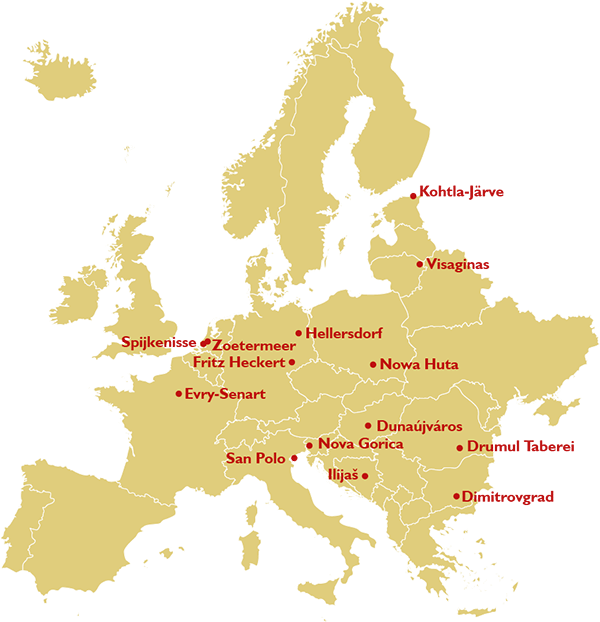New Towns | New Narratives is an initiative of the European network of 14 New Towns, consisting of 18 partners, all over Europe. The aim of the network is to exchange ideas and experiences on the necessary reinvention of these towns, that share a lot in common: they were all built according to a masterplan in the 1960s and 1970s, mostly as industrial towns or satellite cities next to major historic cities. Despite the original ambitions, nowadays these New Towns have become outdated. Most of them struggle with social and demographic problems, a bad image and a (perceived) lack of history, a gap between local government and inhabitants and changing demands of a shifting population.
The 14 New Towns in this network from 12 different countries spread all over Europe, recognize each other’s challenges and want to collectively develop new ideas, solutions, and practices. The network includes representatives of municipalities, and also of NGOs, grassroots organisations and knowledge institutions. Together they aim to organise a series of seven events. Firstly, five active workshops (‘Network Labs’) in five different countries, focused on the most socially relevant topics. These topics have been defined by the consortium: ‘Telling the story’ (including the material and immaterial heritage and the narrative of the town) and ‘Green’ (including climate adaptation and mitigation). The sixth event will be an online meeting in which the Network Labs will be evaluated, and next steps defined. The results and insights of the Labs will be presented at the final seventh meeting with a public seminar, publication, and an exhibition in Nova Gorica (Cultural Capital of Europe 2025). The coördinator of the consortium is the International New Town Institute, an international platform for research and knowledge exchange. Since 2009 INTI has built up expertise and knowledge on a world wide scale and organised similar events in Asia, Africa, Latin America and Europe, combining research and practice.
You can find an overview of the participating New Towns, with a description of their history and current challenges; of the participants with their bio, ranked in alphabetical order; and of the organizations that represent the New Towns. The information is provided by the participating organizations/New Towns themselves.


